第66章 CHAPTER XXVI(3)
It may be deemed unwarrantable thus to draw the lines between what, for want of better terms, we call Material and Spiritual. Still, reason is but the faculty of a very finite being; and, as in the enigma of the will, utterly incapable of solving any problems beyond those whose data are furnished by the senses. Reason is essentially realistic. Science is its domain. But science demonstratively proves that things are not what they seem; their phenomenal existence is nothing else than their relation to our special intelligence. We speak and think as if the discoveries of science were absolutely true, true in themselves, not relatively so for us only. Yet, beings with senses entirely different from ours would have an entirely different science. For them, our best established axioms would be inconceivable, would have no more meaning than that 'Abracadabra is a second intention.'
Science, supported by reason, assures us that the laws of nature - the laws of realistic phenomena - are never suspended at the prayers of man. To this conclusion the educated world is now rapidly coming. If, nevertheless, men thoroughly convinced of this still choose to believe in the efficacy of prayer, reason and science are incompetent to confute them. The belief must be tried elsewhere, - it must be transferred to the tribunal of conscience, or to a metaphysical court, in which reason has no jurisdiction.
This by no means implies that reason, in its own province, is to yield to the 'feeling' which so many cite as the infallible authority for their 'convictions.'
We must not be asked to assent to contradictory propositions.
We must not be asked to believe that injustice, cruelty, and implacable revenge, are not execrable because the Bible tells us they were habitually manifested by the tribal god of the Israelites. The fables of man's fall and of the redemption are fraught with the grossest violation of our moral conscience, and will, in time, be repudiated accordingly. It is idle to say, as the Church says, 'these are mysteries above our human reason.' They are fictions, fabrications which modern research has traced to their sources, and which no unperverted mind would entertain for a moment. Fanatical belief in the truth of such dogmas based upon 'feeling' have confronted all who have gone through the severe ordeal of doubt. A couple of centuries ago, those who held them would have burnt alive those who did not. Now, they have to console themselves with the comforting thought of the fire that shall never be quenched. But even Job's patience could not stand the self-sufficiency of his pious reprovers. The sceptic too may retort: 'No doubt but ye are the people, and wisdom shall die with you.'
Conviction of this kind is but the convenient substitute for knowledge laboriously won, for the patient pursuit of truth at all costs - a plea in short, for ignorance, indolence, incapacity, and the rancorous bigotry begotten of them.
The distinction is not a purely sentimental one - not a belief founded simply on emotion. There is a physical world - the world as known to our senses, and there is a psychical world - the world of feeling, consciousness, thought, and moral life.
Granting, if it pleases you, that material phenomena may be the causes of mental phenomena, that 'la pensee est le produit du corps entier,' still the two cannot be thought of as one. Until it can be proved that 'there is nothing in the world but matter, force, and necessity,' - which will never be, till we know how we lift our hands to our mouths, - there remains for us a world of mystery, which reason never can invade.
It is a pregnant thought of John Mill's, apropos of material and mental interdependence or identity, 'that the uniform coexistence of one fact with another does not make the one fact a part of the other, or the same with it.'
A few words of Renan's may help to support the argument. 'Ce qui revele le vrai Dieu, c'est le sentiment moral. Si l'humanite n'etait qu'intelligente, elle serait athee. Le devoir, le devouement, le sacrifice, toutes choses dont l'histoire est pleine, sont inexplicables sans Dieu.' For all these we need help. Is it foolishness to pray for it?
Perhaps so. Yet, perhaps not; for 'Tout est possible, meme Dieu.'
Whether possible, or impossible, this much is absolutely certain: man must and will have a religion as long as this world lasts. Let us not fear truth. Criticism will change men's dogmas, but it will not change man's nature.